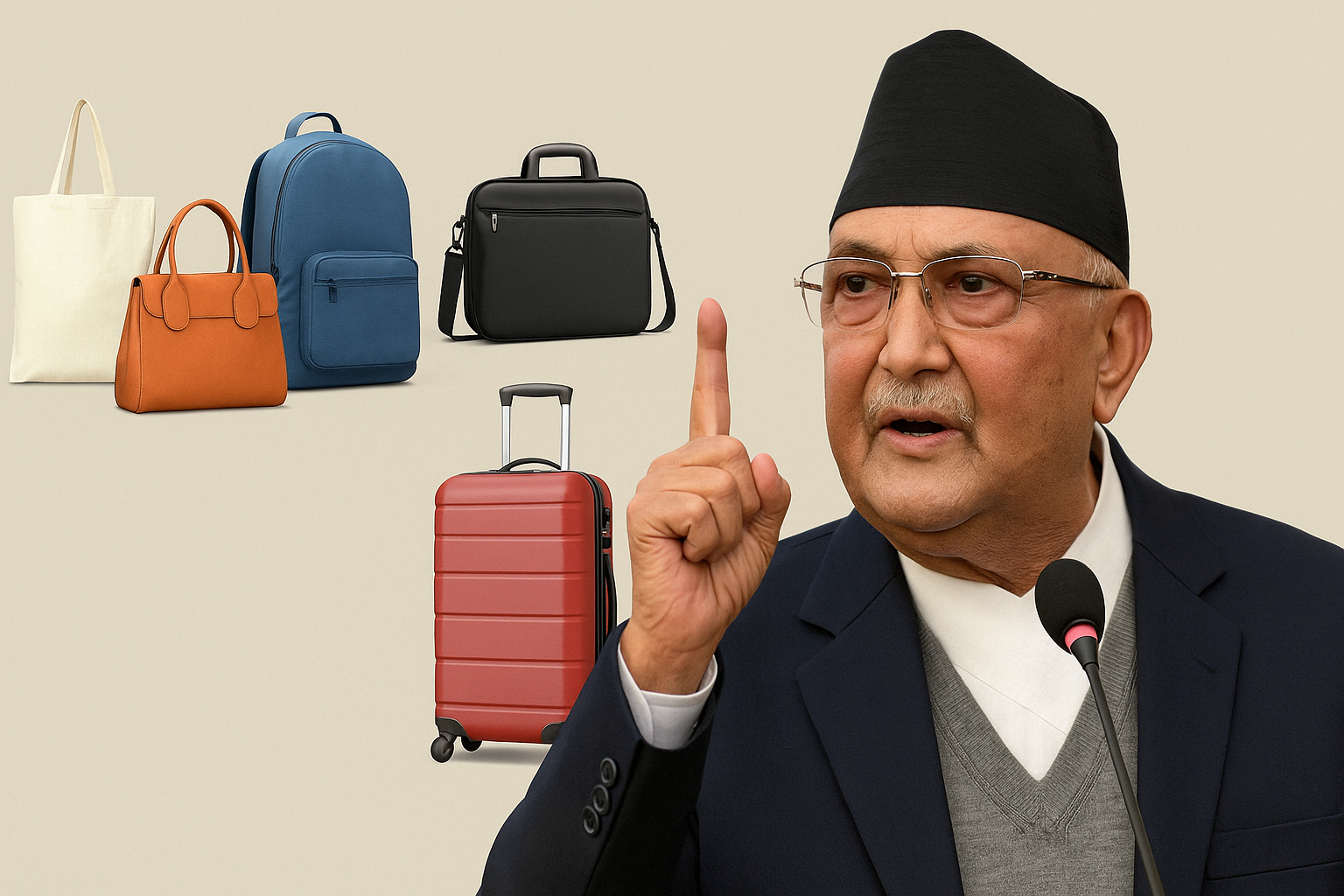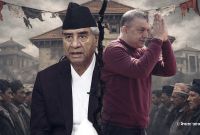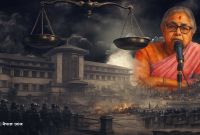Are You a ‘Jhole’ or Not? Find Out, Reflect Within!
From ‘Jhola’ to ‘Jhole’: Prime Minister Oli’s Political Symbolism and the Democratic Debate

(“झोले” in Nepali political slang refers to a blind, uncritical follower)
Kathmandu — The Nepali dictionary defines jhola as a "cloth bag designed to be slung over the shoulder or carried by hand." In everyday life, the jhola is inseparable from our routines—used by schoolchildren to carry books, by shoppers hauling vegetables from the market, or by travelers on a long journey. From handbags and backpacks to office bags, suitcases, and simple fabric totes, the jhola has become a powerful symbol of simplicity and utility in modern life.
But last week in Nepal’s political arena, the jhola transformed into something more symbolic—a metaphor for political identity. It became “jhole.”
Prime Minister KP Sharma Oli revived this controversial term by proudly proclaiming, "Ma jhole ho" (“I am a jhole”), encouraging his party members and followers to embrace the label. High-profile leaders of his party, CPN-UML—including Deputy Prime Minister and Finance Minister Bishnu Poudel and Minister for Information Technology Prithvi Subba Gurung—joined the campaign by sharing posters bearing the same slogan on social media. During a recent intellectual gathering, Oli stated emphatically, “I am the jhole of the CPN-UML, I am the jhole of this nation. Carrying the jhola of change is far better than becoming someone’s servant.”
In Nepali political discourse, the term jhole is usually derogatory. It refers to individuals who abandon critical thinking and blindly follow political leaders, often carrying out orders without question. But Oli, through rhetorical inversion, redefined the term: “A jhola is meant to carry good things. So if I carry the values of change, I am a jhole with pride.” Through this reframing, he attempted to reclaim and elevate a word once synonymous with blind loyalty.
His use of jhole was more than just a rebuttal to political satire—it was a calculated deployment of symbolic language in democratic discourse. In a democracy, metaphor and language are powerful tools for engagement, and Oli’s narrative positioned the jhole not as a sign of subservience but as a carrier of values, commitment, and transformation.
However, this symbolic move also intensified public satire on social media. On Republic Day, as CPN-UML supporters marched in rallies and caused traffic delays in Kathmandu, many citizens mockingly shouted "jhole" at the marchers. In a democracy, such irony and critique are natural expressions of free speech—and in that sense, the public response was as legitimate as Oli’s rhetorical initiative.
But the conversation shouldn’t stop there. If a Prime Minister can freely use metaphors, opposition voices should also be equally free to respond with satire. Yet, the critical question remains: Are we nurturing our democracy with discernment, or are we slowly allowing blind loyalty to erode it?
Across the country—especially in rural areas and among marginalized communities—the freedom to speak remains fragile. Even within journalism, many face fear or pressure that inhibits truthful expression. Before mocking political parties or leaders, we must also question the silence that still grips significant portions of our society.
So, what truly makes someone a political jhole? If you support everything your leader says without reflection, if you obey every directive without question, and if you avoid critique in favor of blind loyalty—you may very well be one. And that, many would argue, is dangerous for democracy. The jhole mindset promotes personality cults, stifles independent thinking, and opens the door to authoritarianism.
On the other hand, the jhola—in its literal sense—is undeniably useful and even essential in daily life. Whether it’s a school bag, an office briefcase, a grocery tote, or a travel backpack, it helps us carry the essentials of life. So the real challenge is to use the jhola, but not become a jhole. Let us choose bags that are reusable and eco-friendly—cloth, paper, or repurposed materials—while also carrying in them ideas, integrity, and a sense of civic responsibility.
Ultimately, Prime Minister Oli’s use of the word jhole is a metaphor—one open to interpretation. It could represent a committed worker carrying the people's hopes, or an unthinking follower clinging to a leader’s coattails. The question now is: Have we understood what’s in our own jhola? Are we truly aware of the values, thoughts, and responsibilities we carry as citizens?
Politics, society, and awareness—this collective journey—will now be shaped by what we choose to place inside our jhola. And what we carry, or fail to carry, will define who we really are.
By: Sudhanshu Acharya




![From Kathmandu to the World: How Excel Students Are Winning Big [Admission Open]](https://nepalaaja.com/img/70194/medium/excel-college-info-eng-nep-2342.jpg)
